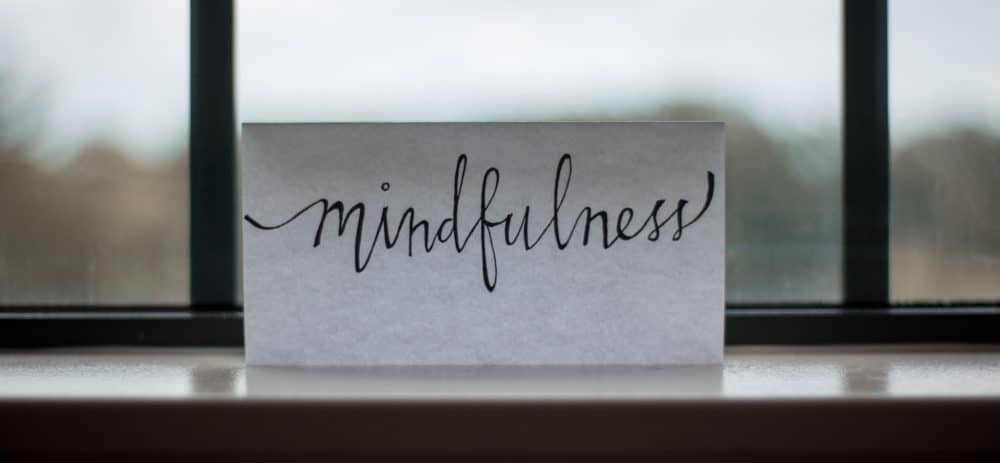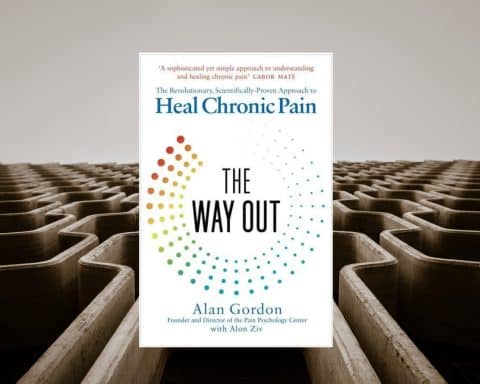 William Van Gordon is Associate Professor of Contemplative Psychology at the University of Derby, UK. He is on Twitter: @Van_Gordon_W
William Van Gordon is Associate Professor of Contemplative Psychology at the University of Derby, UK. He is on Twitter: @Van_Gordon_W
While challenges presented by the COVID-19 pandemic are likely to affect the psychological health of the UK population as a whole, frontline healthcare workers have been identified as being at increased risk for mental health issues.1 In addition to significant changes to ways of working, frontline healthcare workers are having to contend with the psychological demands arising from risk of contamination, disruption of supportive structures, retention issues, and work-related stress and fatigue.1
A survey of the UK healthcare workforce found that 50% of respondents felt their mental health had declined during the pandemic, and more than 20% reported they were more likely to leave the sector as a result. In another survey of over 6,000 UK doctors, 44% reported experiencing depression, anxiety, stress, burnout or other mental health conditions relating to their work.
50% of respondents felt their mental health had declined during the pandemic.
This is consistent with a survey in China which showed that the prevalence of depression and anxiety amongst healthcare workers during the outbreak was 50% and 44%, respectively. It is also consistent with the wider increase in pandemic-related mental health issues experienced across the general population. For example, a UK community cohort study (n=3,097) focusing on the impact on mental health of adjusting to the pandemic showed that compared to population norms during the pre-COVID-19 period, scores for depression, stress and anxiety were significantly higher.
Even without having to cope with a pandemic, burnout is a known risk for frontline healthcare workers and is typified by work-related exhaustion, feeling distanced from work, negatively-valanced attitudes toward work, and impaired professional efficacy. However, a further mental health issue more specific to the current pandemic is moral injury, which refers to psychological distress arising from violations of a healthcare worker’s moral or ethical code.2 This could be due to actions, inactions, feeling helpless, feeling let down or betrayed by leaders, and/or concerns that one’s work may be putting family members’ health at risk.2
Can Meditation Help?
Due to the increased risk of frontline healthcare workers developing mental health problems during the COVID-19 pandemic, there is a need for cost-effective non-invasive interventions that can build resilience as well as ameliorate existing mental health issues.1 One such group of interventions of interest are secular meditation and mindfulness approaches, which typically involve the use of contemplation and introspection techniques, such as present moment awareness.3 During the last 40 years, a significant body of evidence has amassed demonstrating that secular meditation interventions can be an effective means of fostering resilience and recovery from mental illness in a range of populations, including frontline healthcare workers.3
Secular meditation interventions can be an effective means of fostering resilience and recovery from mental illness in …. frontline healthcare workers.
More specifically, the evidence points toward improvements in burnout symptoms, stress, anxiety, depression, interpersonal reactivity, emotion regulation, job satisfaction, life satisfaction, psychological wellbeing and patient-centred care.4,5,6 Outcomes appear to be particularly promising where the intervention teaches meditation alongside techniques aimed at cultivating loving-kindness and other aspects of self-care.
Outcomes [are] particularly promising … techniques aimed at cultivating loving-kindness and other aspects of self-care.
There is also preliminary evidence indicating a role for meditation and mindfulness in the context of helping individuals cope with the psychological challenges associated with the COVID-19 pandemic. For example, a survey (n=6,412) conducted in Italy during the initial lockdown phase observed a negative correlation between dispositional mindfulness and COVID-19-related psychological distress variables. This is consistent with a study conducted during the outbreak in Wuhan (China), where residents (n=97) were randomly assigned to a 10-day mindfulness intervention or a mind wandering control group. Compared to the control group, the mindfulness group demonstrated significant reductions in daily anxiety as well as greater durations of sleep. In another intervention study, Italian female teachers (n=66) impacted by the pandemic received an 8-week mindfulness meditation course involving two group meetings and six individual video-lessons. Participants showed significant pre–post improvements in levels of anxiety, depression, affective empathy, emotional exhaustion, psychological well-being, interoceptive awareness and mindfulness.
More studies are needed in the specific context of investigating the applications of meditation for helping frontline healthcare workers cope with the mental health challenges arising from the pandemic. However, given the demonstrable capacity of meditation to help individuals self-regulate unhealthy emotions, foster acceptance, and enhance immune system response via reductions in blood cortisol levels and inflammation response, evidence-based meditation and mindfulness approaches are likely to have a role during the pandemic for building resilience and improving mental health for this key worker group.7
References
1. Homes, E. A., O’Connor, R. C., Perry, V. H., Tracey, I., Wessely, S., Arseneault, L., … Madan, I. (2020). Multidisciplinary research priorities for the COVID-19 pandemic: a call for action for mental health science. The Lancet Psychiatry. 2020; 7(6):547-560.
2. Greenberg, N., & Gnanapragasam, S. Managing mental health challenges faced by healthcare workers during covid-19 pandemic: BMJ. 2020;368:m1211.
3. Shonin, E., Van Gordon, W., & Griffiths, M. D. Does mindfulness work? BMJ. 2015; 351:h6919. DOI: 10.1136/bmj.h6919.
4. Raab, K. Mindfulness, Self-Compassion, and Empathy Among Health Care Professionals: A Review of the Literature. Journal of Health Care Chaplaincy. 2014;20(3):95-108.
5. Irving, J. A., Dobkin. P. L., & Park, J. Cultivating mindfulness in health care professionals: A review of empirical studies of mindfulness-based stress reduction (MBSR). Complementary Therapies in Clinical Practice. 2009;15:61-66.
6. Klein, A., Taieb, O., Xavier, S., Baubet, T., & Reyre, A. The benefits of mindfulness-based interventions on burnout among health professionals: A systematic review. Explore. 2020;Advance Online Publication: DOI 10.1016/j.explore.2019.09.002.
7. Yanyu, J., Xi, Y., Huiqi, T., Bangjiang, F., LiBin, Yabin, G., … Lijun, J. Meditation-based interventions might be helpful for coping with the Coronavirus disease 2019 COVID-19. OSFPREPRINTS. 2020; DOI 10.31219/osf.io/f3xzq.
Featured photo by Lesly Juarez on Unsplash






